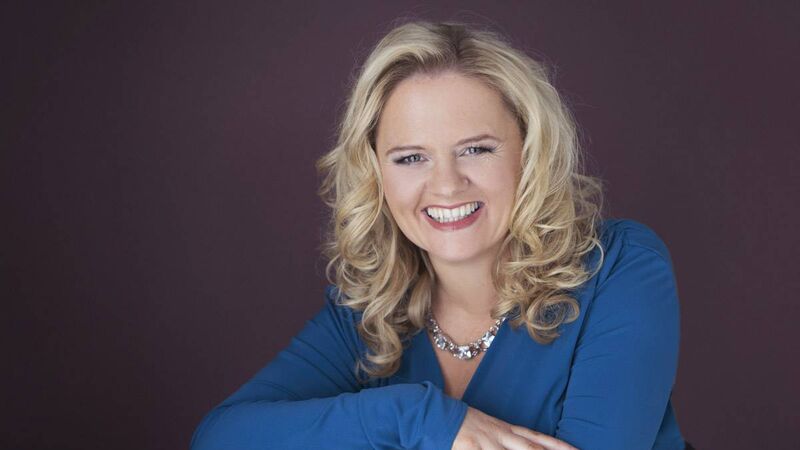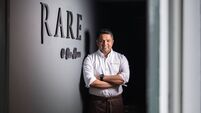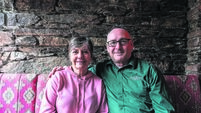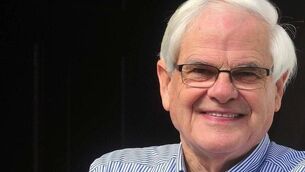Cork woman is busting society myths about autism

WHEN is the last time you had a conversation with an adult who has autism?
While conversing with Evaleen Whelton, I considered that perhaps I never had. Yes, I had spoken to several parents of children with autism, as well as those working in the autism education sphere. There was always somebody speaking for them, I realised.
Which is why Evaleen’s forthcoming AUsome conference in Cork is so important, given that every speaker and participant at the event will be someone with autism.
There were many things I learned while I chatted to Evaleen. One is that she doesn’t advocate the term ‘with autism’, preferring instead to refer to autistic people.
“It’s my identity”, she says firmly. And so, for the remainder of this article, that’s the term to be used.
For Evaleen, a mother of one who lives near Bandon, that identity was only officially confirmed four years ago as a fully grown adult. But when did she suspect she could be autistic?
“Ah sure, I was always a bit weird,” she laughs. “For me it was always trying to fit in. I’d be masking; a lot of autistic people do that. It’s pretending; you copy other people so you’re not noticed. It takes a lot out of you.
“As an adult, I’ve been teaching autistic kids and I always ‘got’ those kids in class and wondered if I was a bit like them.”
Her autistic traits would have been apparent during her own school days but were either misunderstood or overlooked.
“Primary school was lovely. I had the same teacher for three years and I was top of my class. It was more in secondary school that the difficulties came. I hit 12 and the social side of things became a problem. I spent most of my energy trying to fit in with people who probably didn’t want to be friends with me anyway — or who wouldn’t ever have been good friends. I was just not ‘getting’ stuff. And because I was academic I suffered being called a swot. I was hearing that all the time so I stopped studying.
“There were things I probably should have been allowed to do, like stimming; that’s when we use our hands all the time when talking and we clap our hands when excited. It’s a way we process stuff. We need to move to learn. It’s muscle memory. If I was in my class I’d be drawing on my book to help me concentrate but my teacher told me to stop, basically.
“I’d get headaches from the fluorescent lights and the sheen off the blackboard. The colour blue in a room gave me headaches. I’d be quite sensitive to lights and colours.”
Did her parents notice anything?
“No, I was just who I was”, she says.
Although food was an issue, so mealtimes weren’t too straightforward.

“I still don’t eat vegetables”, she explains.
“A lot of autistic kids would have a beige diet. My mom just made my dinner and then made everyone else’s. It’s not a problem for me; it’s problem for other people that you meet. They’re obsessed with what you’re eating! People call us fussy or picky eaters and that’s not helpful. It’s not a choice for us.”
Alarm bells were ringing into adulthood for Evaleen: “When I was pregnant a lot of sensory stuff bothered me. Being a new mom, I thought ‘how do I play this role?’ I’d been a pretend person to fit in all the time. I couldn’t just be a mom; I’d have to be the perfect mom. That’s the pressure I’d put on myself. I got really compulsive about everything being in order.
“That’s anxiety; that’s how we control our environment. Autistic people are anxious all the time. It’s the pressure to perform; to be someone different all the time.”
The official diagnosis came when her daughter was aged one. How did Evaleen feel when hearing the news?
“Delighted. It was like a relief. It gave me a massive understanding of who I am and why I did stuff. It gave me permission to not be so hard on myself and it lifted the deep shame I had for not knowing how to work the social situations.”
Happily, her husband also had a beautiful response. “He said: ‘Those are all the reasons why I love you’, and ‘I always said you were one in a million’.”
Evaleen, a drama teacher and founder of Konfident Kidz, is frustrated by the amount of ‘misconceptions’ and ‘myths’ relating to autism that exist in society — and she’s keen to set the record straight — for example, when it comes to other people’s perception of body language and communication amongst autistic people.
“I use language very differently to someone who’s not autistic. I fold my arms because it’s comfortable. I feel awkward with my hands by my sides. Someone could interpret that as ‘she doesn’t want to talk to me’.
“Someone will ask ‘Do you like my new top?’ and if I answer ‘No, not really’, they’ll say, ‘Oh, she doesn’t care about my feelings’. But that person just wanted a compliment! I’m just direct.
“We (autistic people) actually have our own language and culture. We communicate perfectly fine together. But when autistic and non-autistic people are together the pressure is on the non-autistic people to learn and be these other people.
“If you’re not allowed to be yourself, it’s a massive infringement on your human rights.”
Evaleen is not a supporter of the widely used Applied Behavioural Analysis (ABA) method of teaching. Advocates of ABA say it has a strong evidence base, comprising more than 50 years of applied research. It is used to treat a range of issues, including autism.

But Evaleen argues: “It’s trying to teach them not to be autistic. We need to be able to express ourselves autistically.”
She believes ABA is not widely supported among ‘the autistic community’. and claims: “It’s based on a lack of understanding of autistic people, who we are and how we move our bodies.”
Nor is Evaleen a fan of the ‘Light It Up Blue’ initiative, which sees buildings lit up in a blue colour on April 1, World Autism Day.
She explains that it was started by an American company called Autism Speaks, which heavily invests in ‘cures’ and the idea of eradicating autism. Even the colour blue, she says, arose from the fact that the original diagnostic model is based on boys’ behaviour, while girls were largely invisible in the autism conversation.
She went against it for a few years by organising an alternative Walk In Red in Bandon on the same date.
While Evaleen appreciates initiatives like autism-friendly shopping, she feels not enough is being done — or fast enough.
“Autism-friendly shopping, while welcome, can be one hour on a Tuesday but we’re excluded every other day.







 App?
App?


